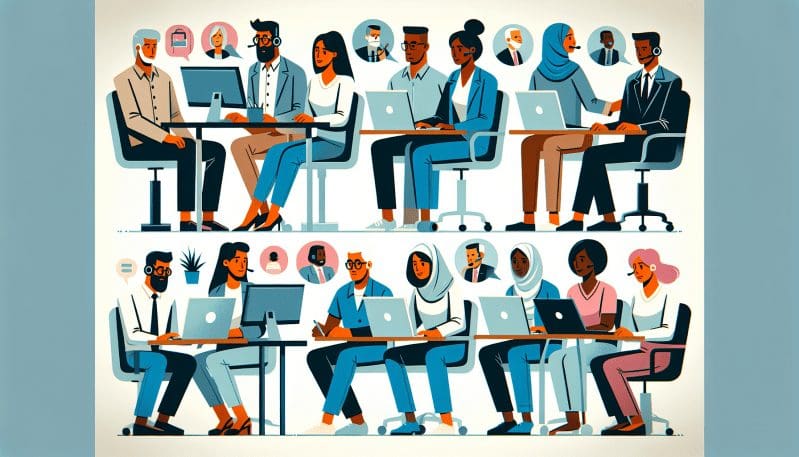As the digital age propels us into an era where the line between work and home blurs, the public sector finds itself at a critical crossroads. Remote work, once a rarity in government circles, has become a staple in the lexicon of public administration. This seismic shift brings with it both promise and perplexity, as agencies navigate the uncharted waters of telecommuting, striving to maintain the sanctity of service amidst a radically transformed work landscape.
The transition has not been without its hurdles. Government entities, known for their stringent protocols and security measures, are now tasked with reconfiguring these frameworks to fit a virtual environment. The paramount concern of safeguarding sensitive information has led to a technological arms race, as agencies rush to implement secure remote-access systems and robust data-protection policies. The challenge is twofold: ensuring employee access to necessary resources while preventing any unauthorized breaches that could compromise national or local integrity.
However, this digital transformation also offers an opportunity for unprecedented innovation in service delivery. By embracing telecommuting, agencies can tap into a wider talent pool, unhindered by geographical constraints. This diversification can lead to a more dynamic workforce, equipped to tackle complex societal issues from multiple vantage points. Furthermore, the shift to online platforms opens new avenues for citizen engagement, allowing for more direct and immediate interaction with government services.
As agencies adapt, so too must the workforce. A cultural metamorphosis is imperative to support a dispersed team that remains cohesive and committed to public service. This entails redefining productivity, not as a measure of hours spent in an office, but as the quality and impact of work produced. It necessitates a reinvention of management practices, focusing on outcomes and employee empowerment rather than mere visibility.
Accountability emerges as a central theme in this new model. With workers operating beyond the watchful eye of supervisors, trust becomes the currency of productivity. Performance metrics must evolve to capture the essence of each role, setting clear, achievable targets that resonate with both individual and organizational objectives.
The long-term implications of these shifts are profound. Government agencies that successfully integrate remote work could see a surge in employee satisfaction and retention, driven by the flexibility and balance it affords. There may be potential cost savings in reduced real estate and operating expenses, funds that can be redirected to enhance public services.
Yet, one cannot ignore the potential drawbacks. The camaraderie and collaboration that often characterize public office spaces might be diluted in a virtual setting. The digital divide could exacerbate inequalities, as those without access to reliable technology or internet services find themselves at a disadvantage.
As we peer into the future of public sector employment, the navigation of these adaptations and challenges will be paramount. The very essence of governance hinges on its ability to serve the public efficiently and equitably. Embracing remote work, with all its intricacies, may not just be an option but a necessity, as the government seeks to redefine productivity for a new era.




























